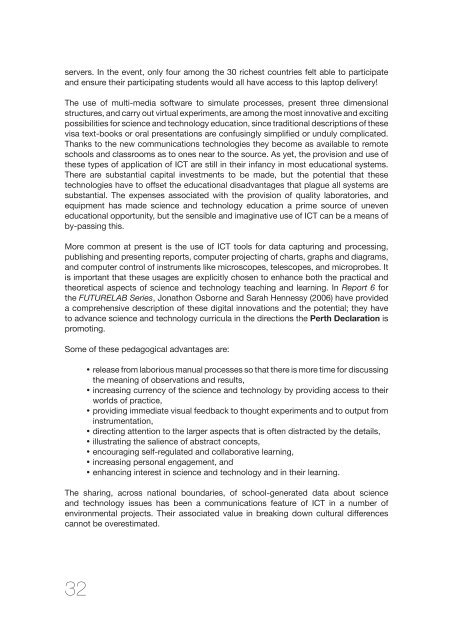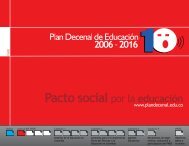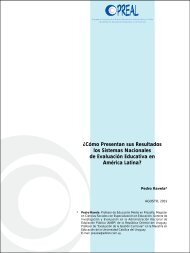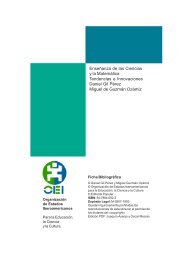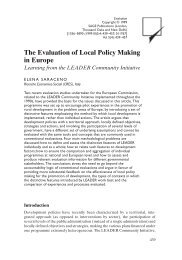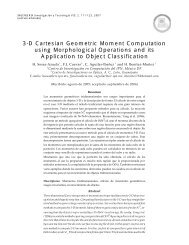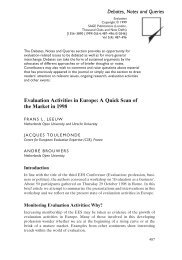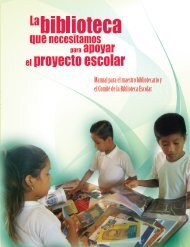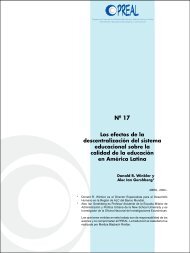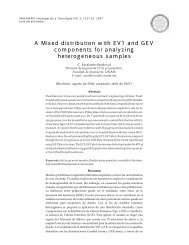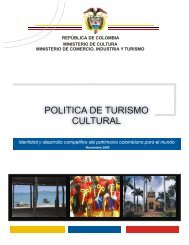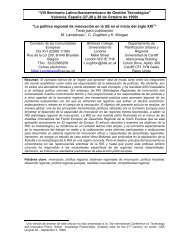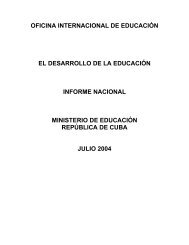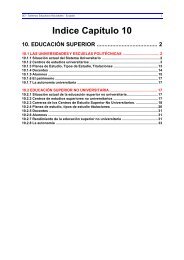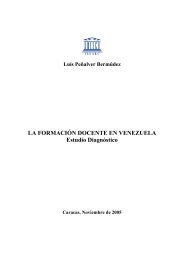Science education policy-making: eleven emerging issues; 2008 - OEI
Science education policy-making: eleven emerging issues; 2008 - OEI
Science education policy-making: eleven emerging issues; 2008 - OEI
Create successful ePaper yourself
Turn your PDF publications into a flip-book with our unique Google optimized e-Paper software.
servers. In the event, only four among the 30 richest countries felt able to participate<br />
and ensure their participating students would all have access to this laptop delivery!<br />
The use of multi-media software to simulate processes, present three dimensional<br />
structures, and carry out virtual experiments, are among the most innovative and exciting<br />
possibilities for science and technology <strong>education</strong>, since traditional descriptions of these<br />
visa text-books or oral presentations are confusingly simplified or unduly complicated.<br />
Thanks to the new communications technologies they become as available to remote<br />
schools and classrooms as to ones near to the source. As yet, the provision and use of<br />
these types of application of ICT are still in their infancy in most <strong>education</strong>al systems.<br />
There are substantial capital investments to be made, but the potential that these<br />
technologies have to offset the <strong>education</strong>al disadvantages that plague all systems are<br />
substantial. The expenses associated with the provision of quality laboratories, and<br />
equipment has made science and technology <strong>education</strong> a prime source of uneven<br />
<strong>education</strong>al opportunity, but the sensible and imaginative use of ICT can be a means of<br />
by-passing this.<br />
More common at present is the use of ICT tools for data capturing and processing,<br />
publishing and presenting reports, computer projecting of charts, graphs and diagrams,<br />
and computer control of instruments like microscopes, telescopes, and microprobes. It<br />
is important that these usages are explicitly chosen to enhance both the practical and<br />
theoretical aspects of science and technology teaching and learning. In Report 6 for<br />
the FUTURELAB Series, Jonathon Osborne and Sarah Hennessy (2006) have provided<br />
a comprehensive description of these digital innovations and the potential; they have<br />
to advance science and technology curricula in the directions the Perth Declaration is<br />
promoting.<br />
Some of these pedagogical advantages are:<br />
• release from laborious manual processes so that there is more time for discussing<br />
the meaning of observations and results,<br />
• increasing currency of the science and technology by providing access to their<br />
worlds of practice,<br />
• providing immediate visual feedback to thought experiments and to output from<br />
instrumentation,<br />
• directing attention to the larger aspects that is often distracted by the details,<br />
• illustrating the salience of abstract concepts,<br />
• encouraging self-regulated and collaborative learning,<br />
• increasing personal engagement, and<br />
• enhancing interest in science and technology and in their learning.<br />
The sharing, across national boundaries, of school-generated data about science<br />
and technology <strong>issues</strong> has been a communications feature of ICT in a number of<br />
environmental projects. Their associated value in breaking down cultural differences<br />
cannot be overestimated.<br />
32


